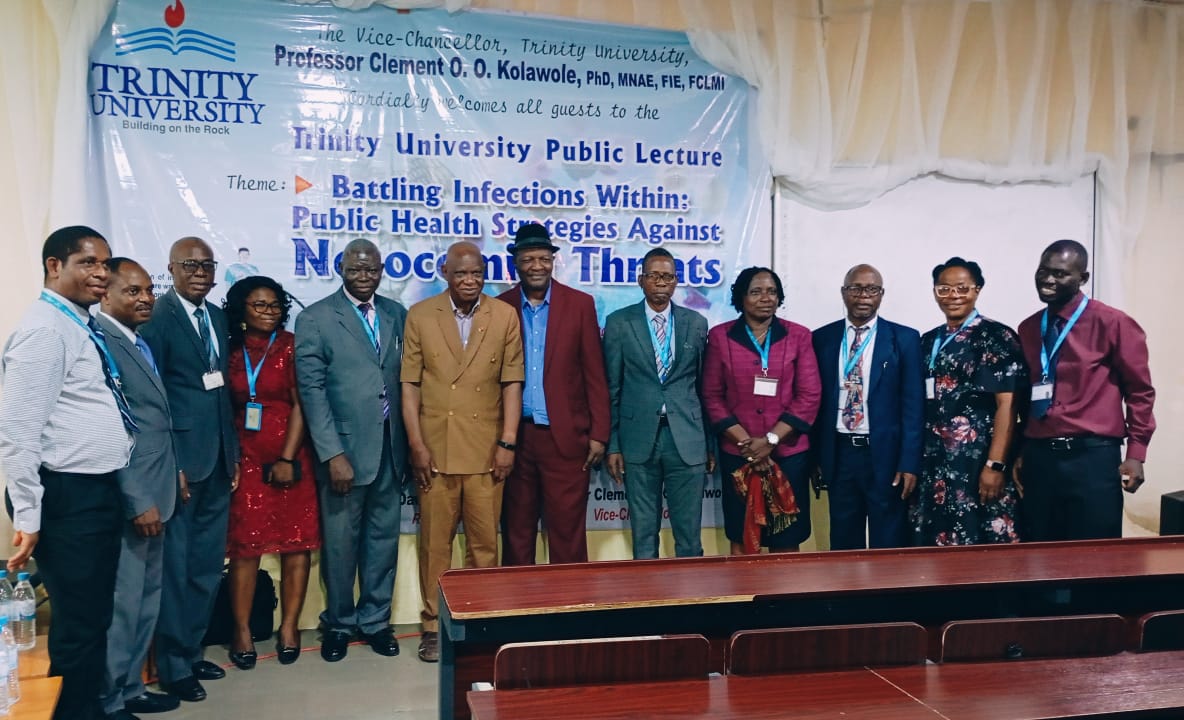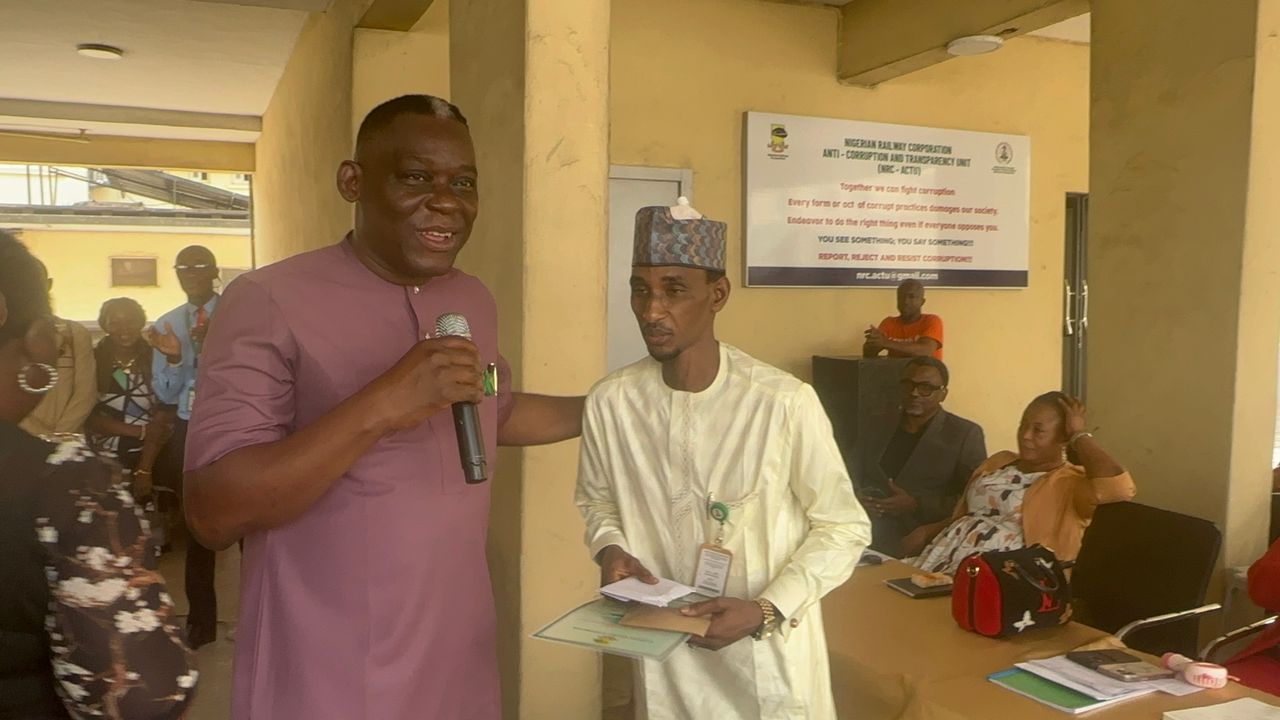
LAGOS – Public health expert, Prof. Nwose Uba of the University of Queensland, Australia, has raised alarm over the growing threat of hospital-acquired (nosocomial) infections in Nigeria, calling for urgent and coordinated infection control measures across the healthcare system.
Prof. Uba made the call on Tuesday while delivering a public lecture organised by the Faculty of Basic, Medical and Applied Sciences, Trinity University, Sabo-Yaba, Lagos. The lecture was titled “Battling Infections Within: Public Health Strategies Against Nosocomial Threats.”
He said nosocomial infections, which patients contract during medical treatment in healthcare facilities, often result from unsafe medical procedures, contaminated equipment, poor hygiene practices, and unclean hospital environments.
“Hospital-acquired infections are preventable yet continue to claim lives and reduce the quality of healthcare delivery,” Uba warned. He explained that even infections triggered by external food sources are classified as hospital-acquired if they occur during hospital admission.
The expert urged governments at all levels, hospital administrators and policymakers to prioritise strict infection prevention protocols through regular staff training, adherence to hygiene standards, provision of sanitary facilities, and investment in surveillance systems.
“Continuous monitoring, data-driven infection control strategies and investment in relevant technologies are vital. We must be proactive to safeguard patients and build a resilient healthcare system,” he said.
Prof. Uba also advised Nigerians to play their part by maintaining proper hygiene, adhering to hospital infection-control policies, and practicing regular handwashing to curb the spread of infections within healthcare facilities and communities.
Speaking earlier, Prof. Clement Kolawole, Vice-Chancellor of Trinity University, said hospital-acquired infections are a “silent but deadly global health threat” that undermine healthcare systems. He called for strengthened healthcare infrastructure, capacity building and improved safety protocols in hospitals.
“At Trinity University, we combine academic excellence with innovation and societal impact. Today’s lecture reinforces our commitment to solving pressing public health challenges,” the vice-chancellor said.
Also speaking, Prof. Abayomi Adetuyi, Dean of the Faculty of Basic, Medical and Applied Sciences, described the lecture as timely, given the increasing burden of preventable infections in hospitals globally.
“This engagement deepens our understanding of strategies required to reduce hospital-based infections and improve patient safety,” he said.
READ ALSO: Senate Passes Wildlife Protection Bill, Paves Way for Tougher Action Against Trafficking
Senate Upholds MDCN Standard, Dismisses Petition Over Withheld Medical License
Registrar of Trinity University, Mr. David Oyejide, said the discussions had renewed commitment to advancing health research and strengthening infection prevention systems through innovation and collaboration.
The public lecture brought together academics, medical professionals, researchers and public health advocates to discuss strategies for building safer hospitals and promoting best practices in infection control.





